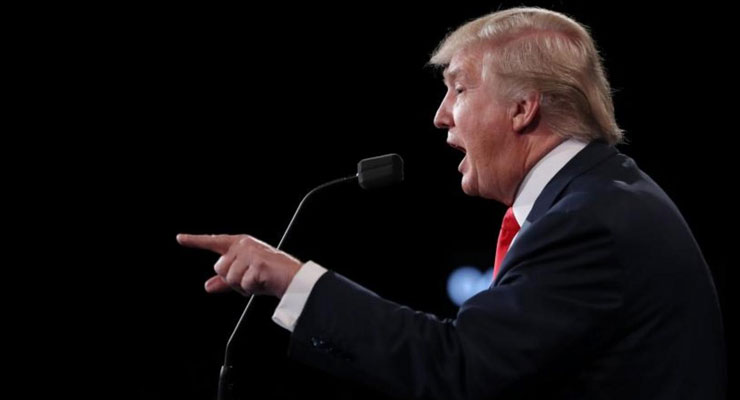
From Slate By Dahlia Lithwick
In February, Georgetown Law professor Josh Geltzer began to ponder aloud what would happen if President Donald Trump refused to leave office were he to be defeated in 2020. It sounded far-fetched, but Geltzer isn’t a conspiracy theorist. Actually, he served as senior director for counterterrorism at the National Security Council and, prior to that, as deputy legal adviser to the NSC and counsel to the assistant attorney general for national security. When he wrote his essay suggesting that perhaps it was time to start preparing for if Trump, who has repeatedly shown a willingness to overstep his constitutional authority, simply refused to leave the Oval Office, he was met with silence. When Michael Cohen warned in his March testimony before Congress, “given my experience working for Mr. Trump, I fear that if he loses the election in 2020 there will never be a peaceful transition of power,” he too was met with awkward silence. But the anxieties gradually began to grow. House Speaker Nancy Pelosi fretted about this possibility in a May interview in the New York Times. When Politico probed the question this summer, it noted: “Constitutional experts and top Republican lawmakers dismiss the fears as nonsense, noting there are too many forces working against a sitting president simply clinging to power—including history, law and political pressure.” But commentators now seem less confident in those forces.
On Thursday, Edward Luce at the Financial Times noted how often Trump jokes about having a third term, observing that, because of Trump’s belief that he could face prosecution after he leaves office, “no other US president has faced the prospect of being re-elected or going to jail.” He added that for Trump, losing the 2020 election is an existential threat, and he has openly invited foreign interference, while Mitch McConnell refuses to even consider legislation to secure the vote. And even if Trump is truly joking when he tweets that he deserves to be credited two extra years in his existing term, years he believes were lost to the Mueller probe, or riffs on staying on the job long after he’d been term-limited out, the tweets send a dangerous message to his loyalists.
I circled back to Geltzer (who is also a frequent Slate contributor) to find out whether his thinking on this once fanciful hypothetical has changed since the winter. Our conversation, which has been edited and condensed for clarity, is below.
Slate has the full gist.
Leave a Reply